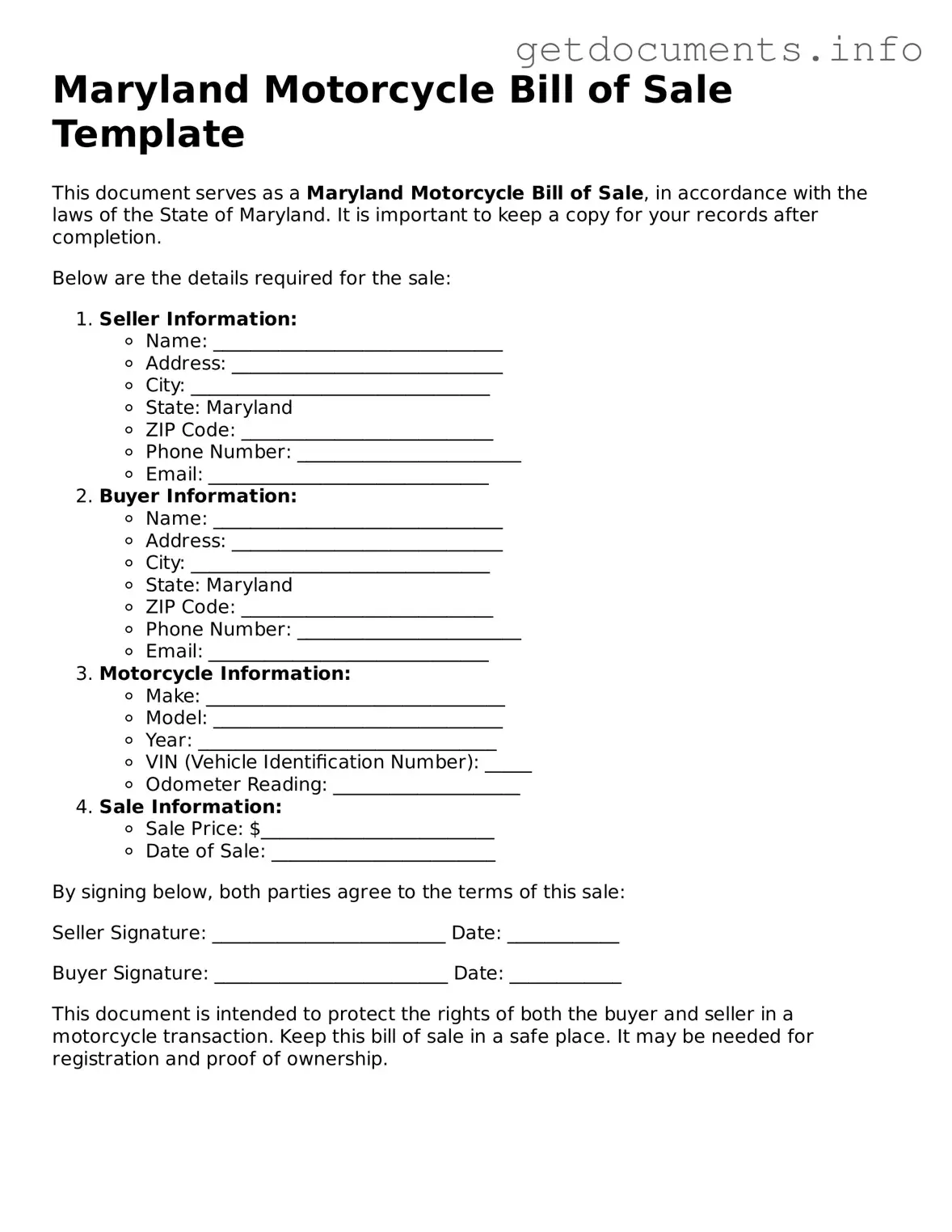Free Motorcycle Bill of Sale Template for Maryland
The Maryland Motorcycle Bill of Sale form is a legal document that records the transfer of ownership of a motorcycle from one party to another. This form serves as proof of sale and includes essential details about the motorcycle and the buyer and seller. To ensure a smooth transaction, it is important to fill out this form accurately.
Complete the Motorcycle Bill of Sale form by clicking the button below.
Access Motorcycle Bill of Sale Editor

Free Motorcycle Bill of Sale Template for Maryland
Access Motorcycle Bill of Sale Editor
Got places to be? Complete the form fast
Fill out Motorcycle Bill of Sale online and avoid printing or scanning.
Access Motorcycle Bill of Sale Editor
or
⇩ PDF File
